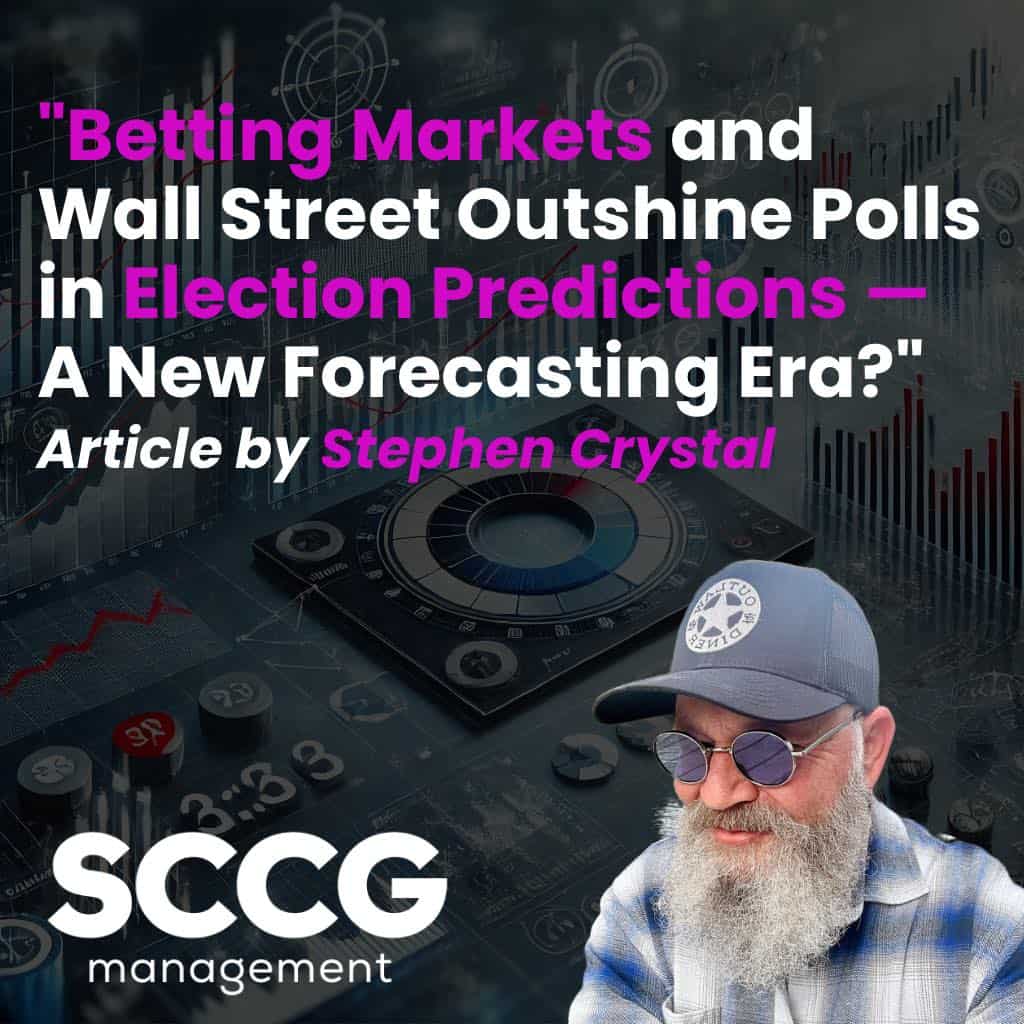
Introduction: Betting Markets and Financial Indicators Outpace Polling
In the 2024 U.S. presidential election, betting markets and financial indicators emerged as highly accurate predictors, outperforming traditional polls. Platforms like Polymarket and Kalshi saw substantial betting volumes, with results consistently favoring Donald Trump. Reflecting a sentiment that aligned closely with the final outcome, this development raises questions about how we interpret political forecasting.
Betting Markets Capture Public Sentiment with Unmatched Precision
Betting markets have long been a unique gauge of public sentiment, but this year they proved particularly accurate. Unlike polling, which often samples a limited demographic, betting markets aggregate data from a diverse set of participants in real time. This year, Polymarket and Kalshi reported billions in election-related betting, consolidating public sentiment in a way that traditional polling couldn’t match. The historical accuracy of betting markets only adds weight to their value, with losses by the betting favorite occurring rarely in over a century.
Wall Street’s Role in Election Forecasting: The Robinhood Effect
The financial markets also played a significant role in predicting the election outcome. Market trends suggested expectations for a Trump victory, with specific sectors showing activity aligned with his policy platform. Robinhood’s election contracts added an entirely new dimension to this year’s financial landscape, giving individual investors the ability to make predictions on presidential outcomes. In these contracts, investors could buy shares predicting either Kamala Harris or Donald Trump would win, receiving a payout if their candidate was officially certified. This approach encouraged users to make data-backed decisions, offering insights into the public’s expectations for election results.
Robinhood’s offering allowed users to hold their positions up until January 6, 2025, or cash out early, simulating a speculative market. This activity created an additional layer of election sentiment within financial markets, reflecting policy-driven confidence from the ground up and showcasing how individual investors were aligning with expectations.
Implications for the Gambling Industry: Expanding Legitimacy
The gambling industry may see a new era of political betting opportunities, as platforms prove their reliability in reflecting real-world outcomes. Betting markets, historically seen as speculative, now demonstrate the potential for accurate data aggregation, leading to new interest and potentially revised regulations that support expanded political betting options.
Technology’s Role in Prediction and Data Interpretation
Both betting and financial markets have benefited from advancements in technology, allowing them to interpret and predict outcomes with greater accuracy. Platforms like Robinhood demonstrate how technology-driven prediction tools can capture public sentiment on a wide scale. As technology continues to evolve, these platforms may offer deeper insights than traditional polling, marking a potential shift in the way we approach political forecasting.
Conclusion: A New Standard in Election Prediction?
The 2024 election has shown that betting markets and Wall Street may become increasingly central to forecasting electoral outcomes. This shift toward technology-driven prediction tools suggests a future where betting and financial markets are not only influential but integral in understanding and anticipating public sentiment, possibly redefining political forecasting.








